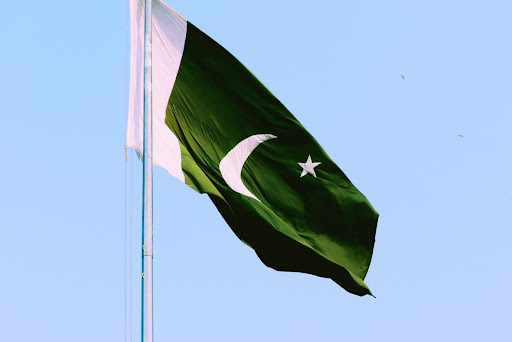Pakistan has been more vulnerable to internal threats than to external ones but because of external factors, these internal risks are rising. In the southern part of Punjab, Baluchistan and even in the urban core of Karachi and Quetta, the sectarian violence has triggered tensions. The politics of sectarian exclusiveness is also becoming mainstream in Pakistan.
Islam is a religion that advocates universal equality, regardless of caste or creed. Islam in the Muslim world is categorically opposed to sectarian division. Shia and Sunni Muslims have a common belief in the unity of God, messengers, His written word, His angels, on the Day of Judgment, and His will. So why are we arguing with one another? Why do we expose our vulnerabilities to our adversaries? The Holy Qur’an does not refer to sectarianism.
Read more: The resurgence of sectarianism in Pakistan: A threat matrix?
Why then do we refer to one another as infidels?
The Holy Quran says:
Indeed, you ˹O Prophet˺ are not responsible whatsoever for those who have divided their faith and split into sects. Their judgment rests only with Allah. And He will inform them of what they used to do.[Surah Al-An’am chapter 6 verse 159]
And hold firmly to the rope of Allah and do not be divided. Remember Allah’s favor upon you when you were enemies, then He united your hearts, so you—by His grace—became brothers. And you were at the brink of a fiery pit and He saved you from it. This is how Allah makes His revelations clear to you, so that you may be ˹rightly˺ guided. [Surah Al-Imran chapter 3 verse 103]
Abuse of the fundamental freedom to exercise one’s religion is pervasive and systemic in Pakistan. It is alarming that there has been a sudden spike in anti-Shia rhetoric and acts of violence, which might lead to widespread sectarian conflict and unrest across the nation. In Pakistan, sectarian violence has sharply increased. Most frequently, conflicts between followers of Islam’s two main factions, Sunnis and Shias, result in such bloodshed.
Ignorance, a lack of comprehension, being behind the times, and a lack of information are the primary causes of religious fanaticism. In certain locations, children are taken to Madrassas to be brainwashed. Islamabad’s Laal Masjid incident serves as an illustration of this. Device Faulty: Serious radical views are amplified by national terrorist attacks, an unsuitable security environment, and a flawed political system. Law enforcement: another factor that aids religious extremism is the lack of law enforcement against organizations that support such behavior.
The fate of a democratic society is directly influenced by how it treats its minority. Despite being Muslims under any interpretation of Islamic law Shias are seen as a minority in a Muslim country. In Pakistan, religion has primarily been utilized for division, sectarianism, and violence rather than for harmony, tolerance, and social development. Most secondary evidence indicates that Pakistan is a multi-ethnic, multi-lingual, and multi-faith country. If tremendous hatred and hostility between the various religions are fostered, this could result in a civil war.
Read more: Why reducing Middle East tensions potentially lessens sectarianism?
Sectarianism might end up in the act of inciting one sect against another for political or financial benefit. Although sectarian violence may involve the use of religious artifacts. The main causes of sectarianism are power struggles, political unrest, cultural upheaval, and monetary gain. Furthermore, Suicide bombings, targeted assassinations of sect leaders, explosions in mosques and imam bargas, and other acts of terrorism are all contributing to an ever-increasing sense of unease in Pakistan. Pakistan’s whole social structure is in danger due to this serious matter. Therefore, finding a solution to the sectarian menace is crucial. However, Pakistan lacks a clear vision and effective measures for addressing sectarian issues.
An unstable nation
A worrying spike in anti-Shia rhetoric and violence has the potential to worsen the nation’s
instability, which has already been affected by full-fledged sectarian conflict. People are
apprehensive because they feel like second-class citizens; however, they are law-abiding,
contributing Pakistani citizens with close to nothing to do with abuse. In some cases, Shia
processions have been stoned, youth have been harassed, and hate often leads to abuse; the state should take it very seriously. Therefore, Muslims must band together and find a solution to the issue of sectarian violence to boost economic growth and bring about peace in the area.
Sectarianism is a point of contention that no one likes to discuss since it may result in emotionally charged debates and emotive political slogans. On other hand, the attitude of fanning the flame of violence should be avoided regardless of whether there is Shia or Sunni problems. As seen by what has occurred in Syria, Iraq, and Yemen, we need to find some form of common ground within Islam across the various sects. We need to discuss some challenging realities, find some common ground, and learn to disagree if we want to advance as a Muslim nation.
Read more: Pakistan to set up interfaith harmony bodies to confront sectarianism
The government should make crucial efforts to educate the masses because religious extremism is increasing due to ignorance and illiteracy in Pakistan. It is easier to brainwash an ordinary mind but is challenging to convince a clever mind of something illogical.
Written by Fatima Tariq
The writer is an undergraduate student of peace and conflict studies at NDU, Islamabad. The views expressed in this article are the author’s own and do not necessarily reflect the editorial policy of Global Village Space.














